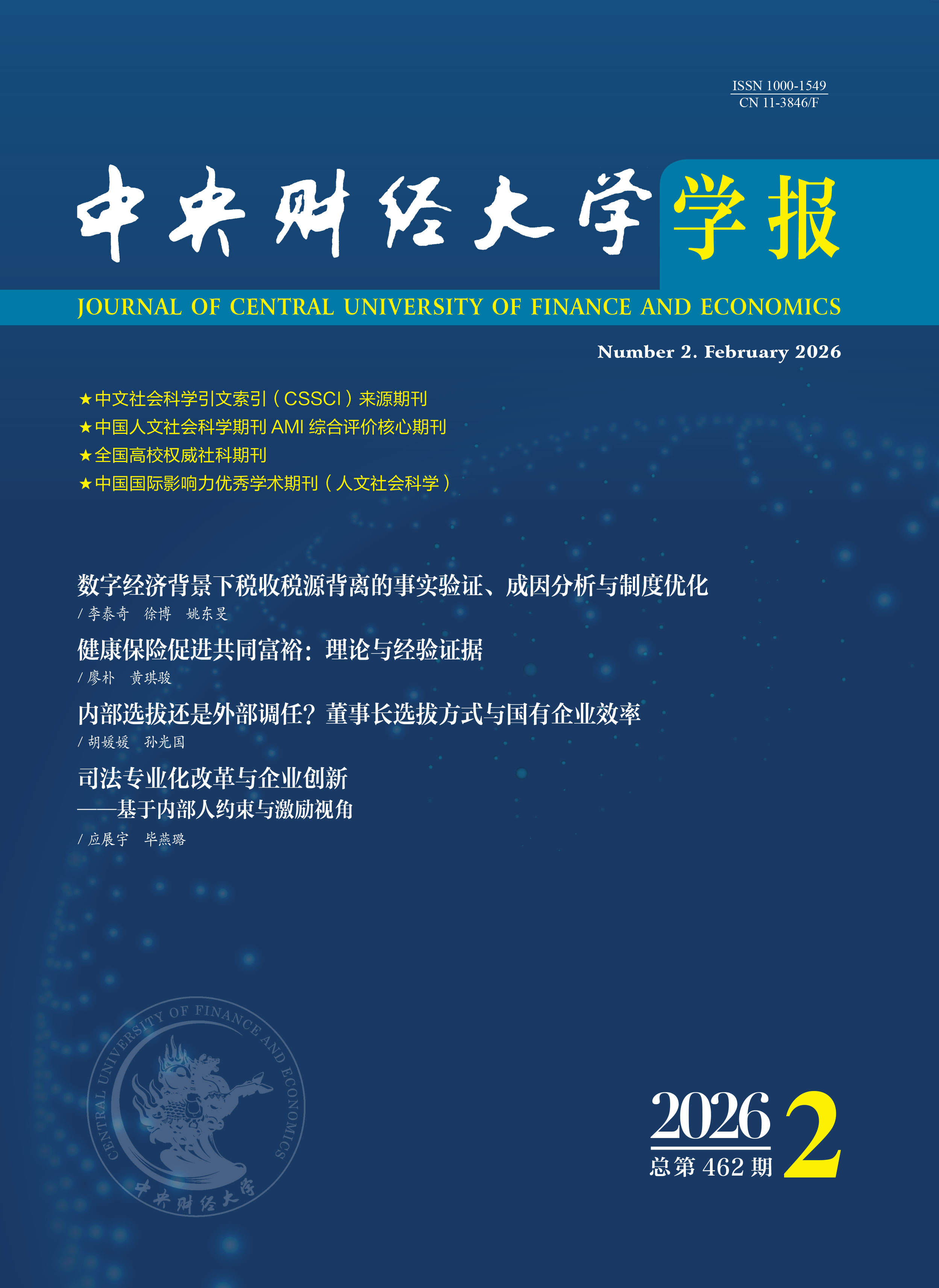LI Taiqi, XU Bo, YAO Dongmin
2026, 0(2): 22-35.
Against the backdrop of the rapid development of the digital economy, emerging economic activities have promoted industrial upgrading and high-quality regional economic growth, while at the same time posing challenges to traditional tax systems that are based on an industrial economy.The mismatch between the digital economy and China's existing tax system has intensified tax-source misalignment, thereby hindering the advancement of coordinated regional development.Based on data at the provincial, county, and firm levels, this paper finds that tax-source misalignment is a widespread phenomenon under China's current institutional framework and is closely related to the development of the digital economy.In terms of underlying causes, the main reason lies in the existing tax allocation principles, under which corporate income tax is assigned to firms' places of registration while value-added tax is attributed to production locations, resulting in cross-regional mismatches between tax revenues and tax sources.On this basis, insufficient adaptability of the vertical tax-sharing mechanism, excessive competition for digital tax sources, and lagging tax administration capacity further affect tax inflows and outflows across regions, thereby exacerbating tax-source misalignment among regions.Accordingly, this paper proposes a set of systematic institutional optimization measures from four aspects: restructuring tax allocation principles to better adapt to new digital business models; establishing a scientific and refined vertical tax-sharing mechanism; regulating excessive competition among local governments to support the development of a unified national market; and building a collaborative tax administration framework based on digital platforms.These measures aim to construct a tax system and related institutional arrangements that are better suited to the digital economy, while mitigating the adverse effects of tax-source misalignment on coordinated regional development.
